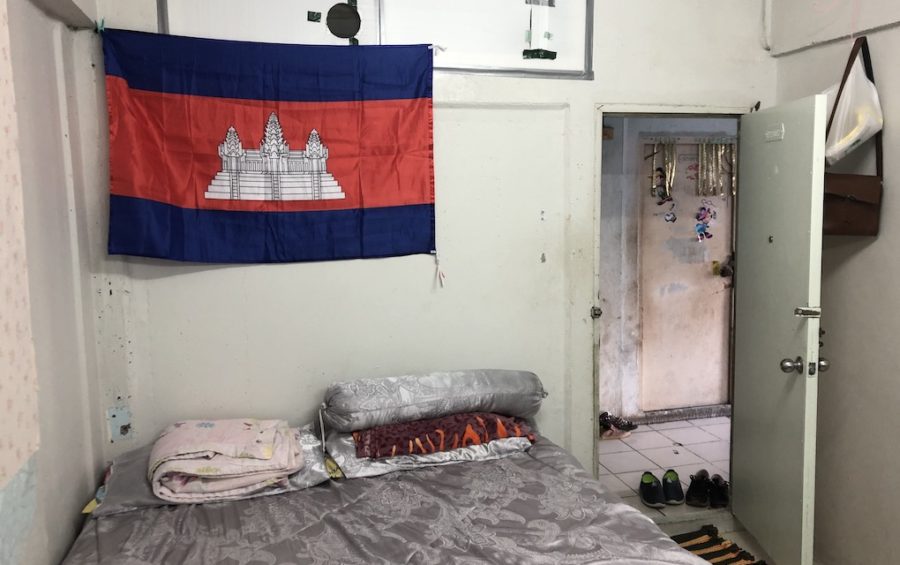Heng Sreynop, a construction worker in Thailand’s Nakhon Pathom province, says she and her husband have been jobless for nearly four months due to Covid-19 lockdown measures.
The 26-year-old has been a migrant worker for three years, leaving her now 6-year-old son at her hometown in Banteay Meanchey province so they could earn money.
In recent days, the couple have been trying to catch fish and snails just to make enough for their daily living in Thailand, Sreynop says.
As of today, Cambodia’s borders have been closed even to Cambodians hoping to return to the country. As Covid-19’s Delta variant rages through Thailand — the country recorded another record 17,669 new infections on Thursday — Cambodia has been put under renewed restrictions hoping to stave off a new surge.
Sreynop says she lives in a red zone in Thailand, and fears Covid-19. She says she understands why the borders need to be closed, but it adds to the pressure.
“If we wanted to escape, we couldn’t escape. We don’t know where to escape,” she says.
She has debt of nearly $300 from renewing her passport and other expenses. She doesn’t know when she will be able to find work again.
Kao Yeut, a worker at a wood processing factory in Bangkok, says he hasn’t received a full salary since the pandemic began.
“Sometimes, just to live, it’s difficult,” Yeut says. “In Thailand now, there’s no job. There’s Covid.”
Chan Samath, a packager at a Bangkok factory, says he disagrees with the government’s decision to close the borders. Some Cambodians in Thailand are desperate, he says. There’s no work, and many have almost no money to buy food.
The Labor Ministry has issued a notice saying Cambodians struggling in Thailand should contact the Cambodian Embassy for help.
In border areas, officials have spoken of increasing numbers of Covid-infected Cambodians returning home amid Thailand’s surging outbreak. This week, 45 percent of Cambodia’s Covid-19 infections were imported cases, which were up 14 percent from last week.
Returnees staying at quarantine centers along the border have meanwhile spoken of overcrowded rooms, poor conditions and the suspected spread of Covid-19 within the facilities.
Loeng Sophon, a Thailand-based project officer at labor rights group Central, says there are challenges, but Cambodians should be allowed to return home, especially if they want to receive medical treatment in the country.
As Covid-19 spreads in Thailand, some Cambodians are contracting Covid-19 but receiving no treatment due to overcrowded health facilities, Sophon says.
“When it’s closed, it’s more challenging for them. Those who have not experienced it, they can’t know how much the suffering is. But those who are experiencing it, I think, they are more worried, more miserable.”













